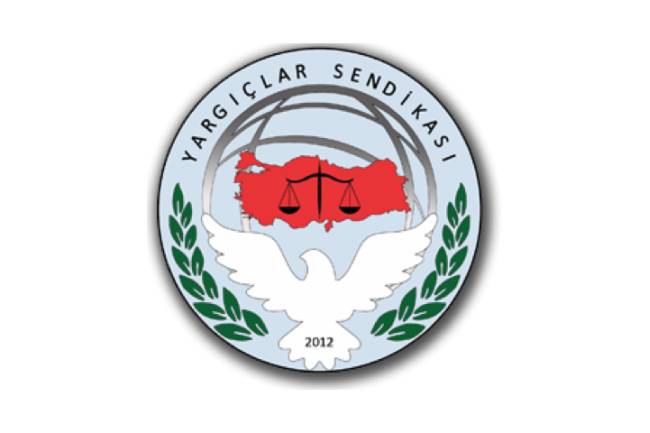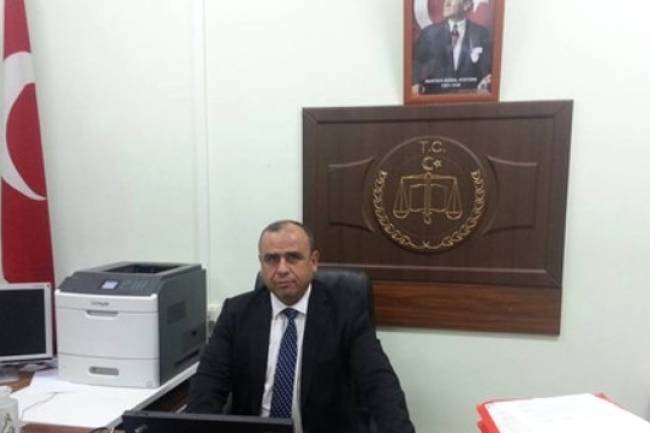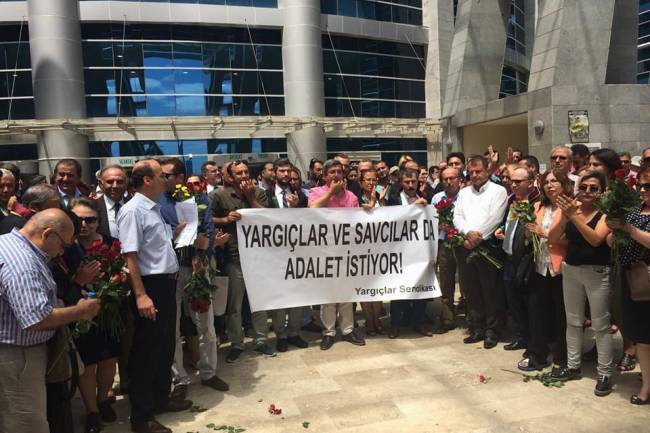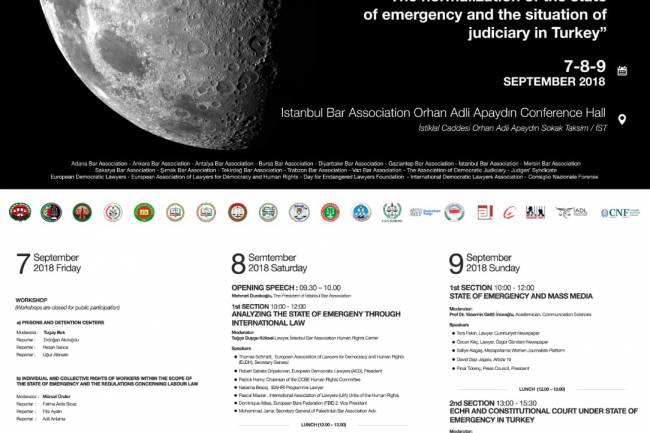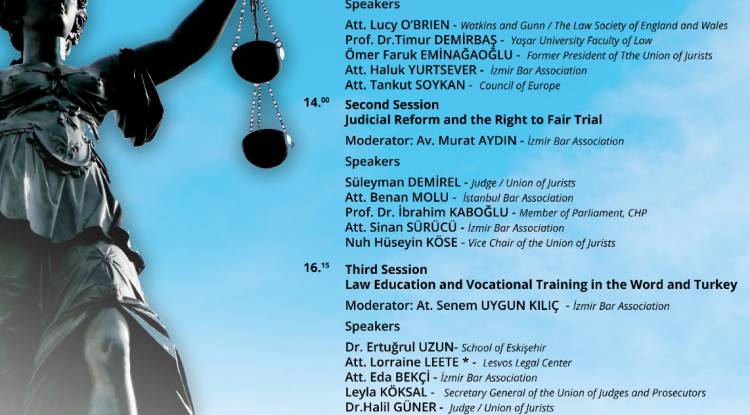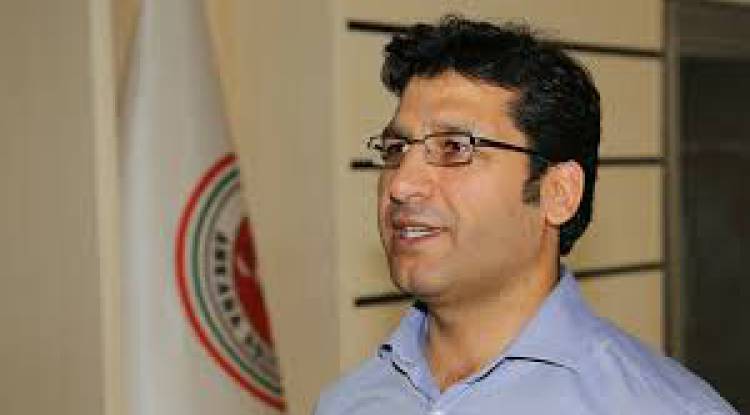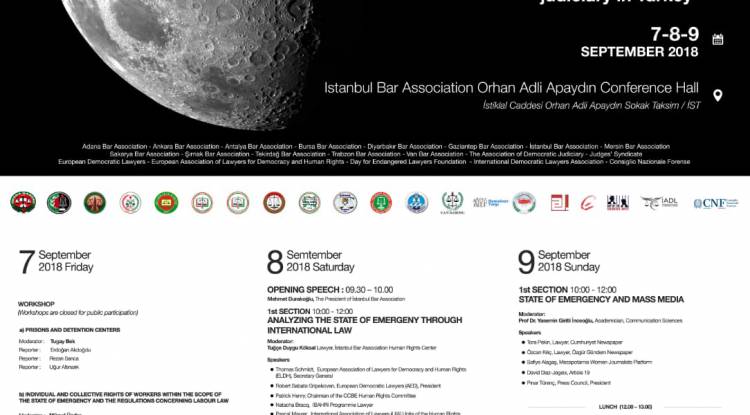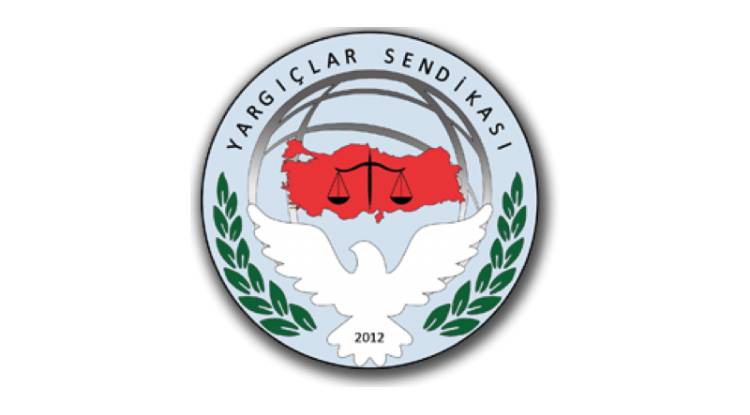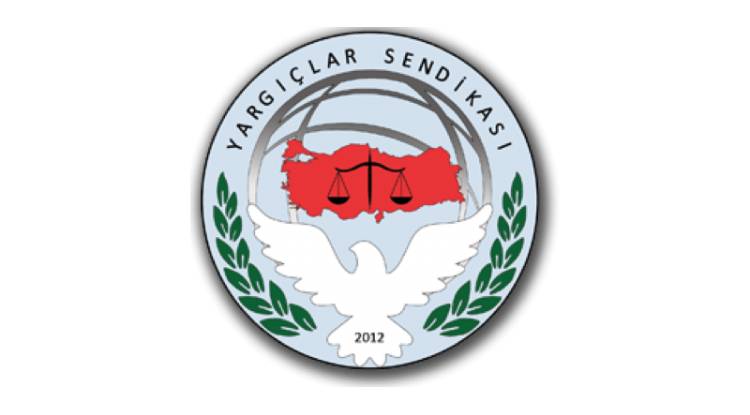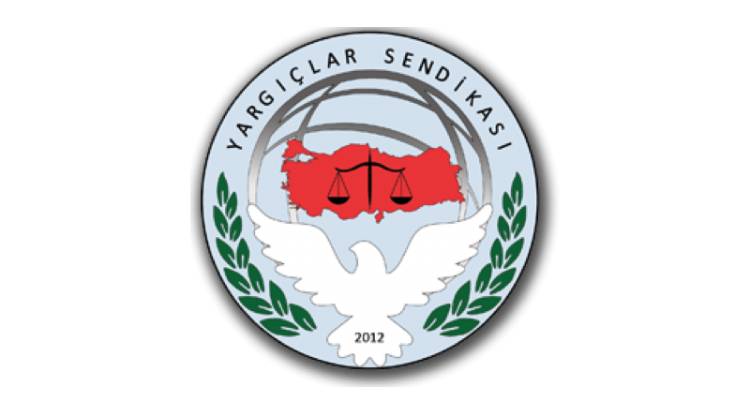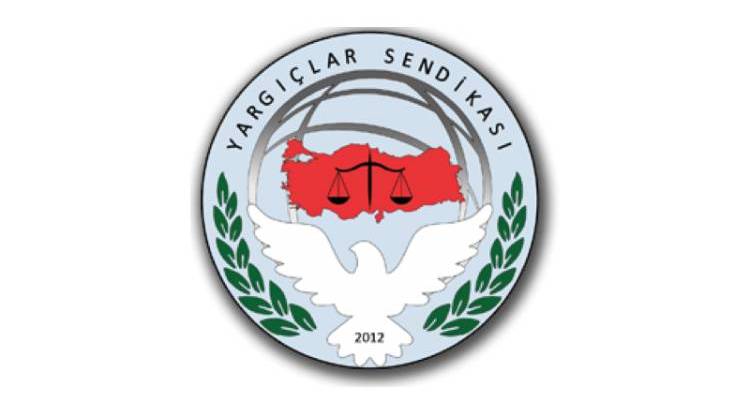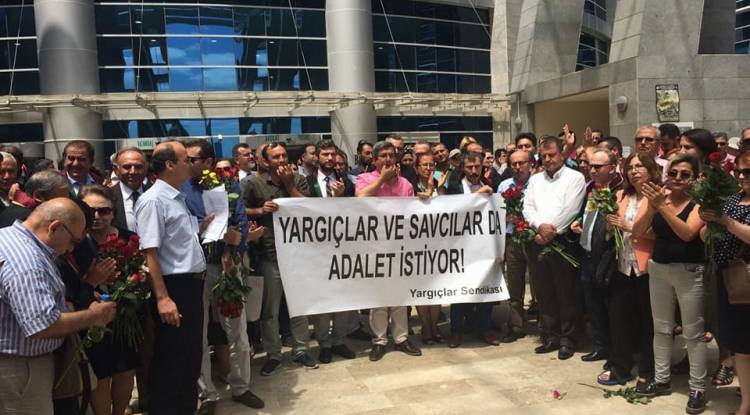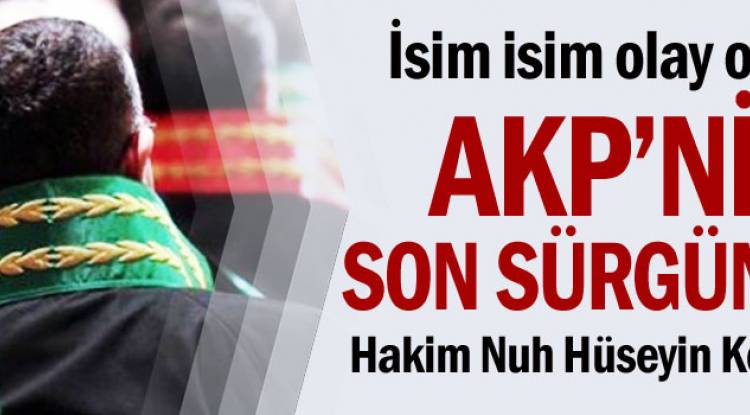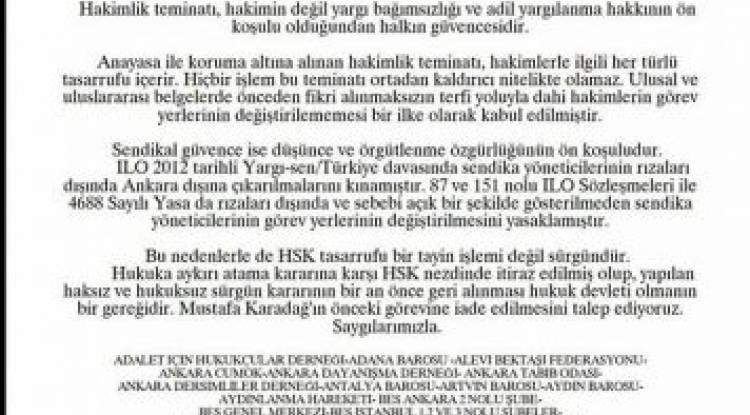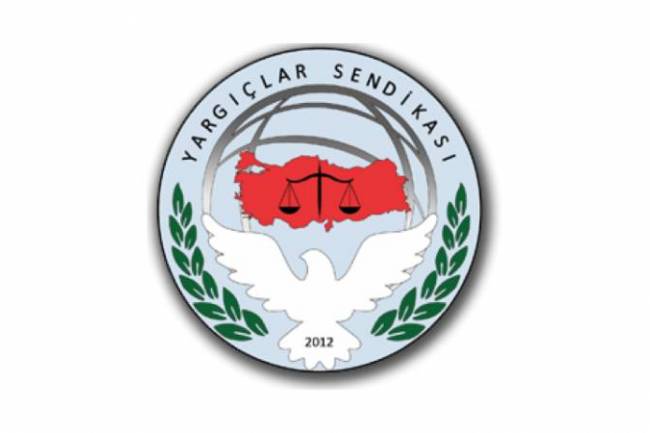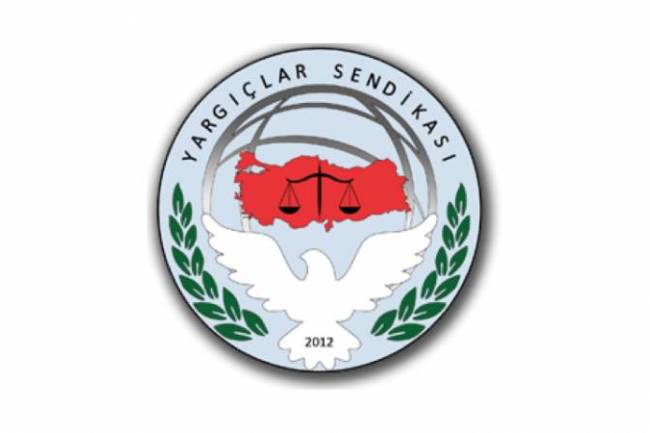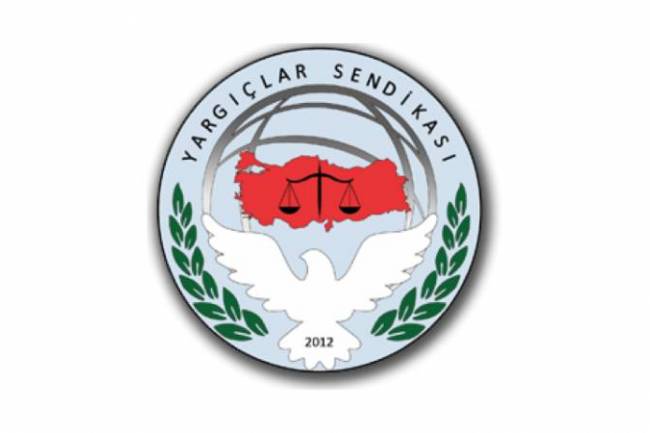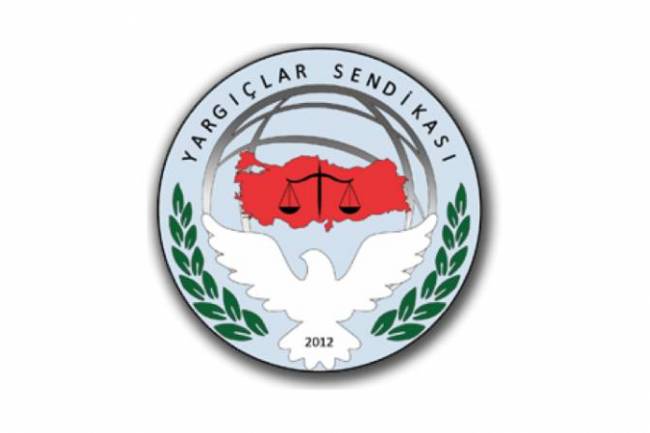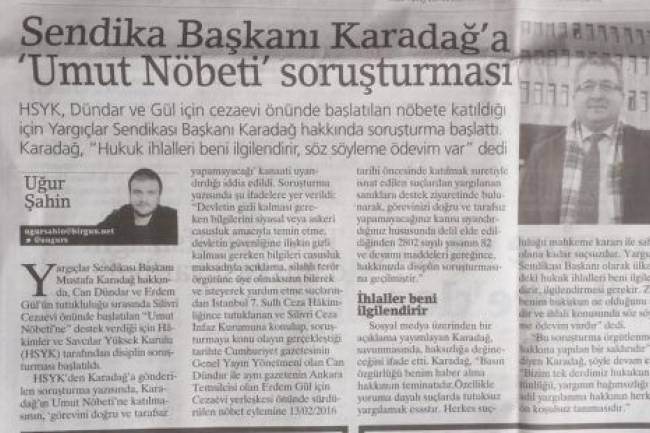Union Statute
Article 1- Name, emblem and short name of the Union
- The name of Union is “the Union of Judges”.
- The emblem and short name shall be determined by the Administrative Board.
Article 2- Head office and address of the Union
- The head office of the Union is in Ankara.
- The address of the Union shall be determined by the Administrative Board, provided that it is the head office address of the Union.
Article 3- The aims of and the principles adopted by the Union
- The Union aims at the existence, development and continuity of the state of law. For these purposes, the Union advocates the supremacy of law, the effectiveness of law, the rule of law and the enhancement of the dignity of law.
- The Union aims at the independence of the judiciary, the impartiality of the judiciary and the tenure of judges. Inthis context, the Union advocates the independence and effectiveness of the defence and revocation of military jurisdiction.
- The Union advocates that the right to legal remedies should be ensured effectively in the national, international and supranational levels, namely in all levels and for everyone.
- The Union advocates the effectively realization of the requirements and rules of fair trial and the implementation of the principle of the natural judge.
- The Union advocates the establishment of social and labour peace, the realization of social justice, and the protection and development of the academic, economic, democratic, social, cultural, legal and professional rights and interests of its members and the employees within the mentality of free unionism.
- The Union advocates the supremacy, effectiveness and rule of law, as well as the principles and values of the Republic for the existence of the environment where the supremacy, effectiveness and rule of law shall be ensured, and in this context, the maintenance and protection of secularism forming the basis of sovereignty and freedoms, and advocates the indispensability that the State which shall ensure these matters has the characteristics of unitary, democratic and secular State as well as the characteristics of state of law.
- The Union advocates the creation of all kinds of environments intended for the effectively exercise and protection of the human rights and freedoms.
- Considering the expression “the law is for everyone”, the Union aims at the protection of labour and the removal of any obstacles and limitations to the rights and freedoms of all the employees and the labourers, which conflict with the requirements of the state of law and democratic society. Therefore, the Union adopts the principle of fighting for bringing the fundamental rights and freedoms, the work life and the union rights to a level that should be in compliance with the universal criteria, and the principle of fighting for the enjoyment of the fundamental rights and freedoms, the work life and the union rights in that level. The Union advocates the removal of the necessity that unionization takes place within a certain type.
- The Union advocates that, as a requirement of the state of law, judges, prosecutors and lawyers as well as the candidates of these three professions and all employees should be organized in the context of the fundamental rights and freedoms and without administrative and financial tutelage, and the Union advocates the removal of all kinds of restrictions and limitations concerning their organizations, and advocates that this should also take place for all employees.
- The Union advocates the observance of the judicial ethics, the maintenance and development of the rules concerning the judicial ethics; and advocates that a resistance against any attacks and dangers, regardless of their origins, aiming at judicial bodies, judges, prosecutors, lawyers, public notaries, academicians, judicial staffs and the supremacy of law shall not be characterized as a political activity.
- The Union aims to carry out activities by taking the intra-organizational democracy as basis, which also includes criticism, self-criticism, persuasion and discussion processes, and as required by the Charter and the legislation, and within the framework of the requirements of the democratic society, and by observing its intra-organizational discipline as well.
Article 4- Working subjects, working procedures, powers and activities of the Union
- The Union is entitled to organize courses, seminars, workshops, conferences, congresses, symposiums, meetings and interviews intended for the realization of its aims and principles as well as social and professional meetings, and carry out all kinds of similar professional and scientific activities and organize all kinds of events for communication, representation, cooperation and consulting purposes, and carry out scientific studies and issue all kinds of publications.
- The Union is entitled to issue all kinds of periodicals, non-periodicals or daily written, visual and audio publications, make written and oral press statements, and set up and create websites.
- The Union is entitled to carry out monitoring, examination, analysis and research studies, or is entitled to have these studies performed, or support or participate in those that are and/or will be performed. The Union is entitled to communicate and announce its opinions, considerations and studies to decision-making groups, authorized institutions, organizations, entities and units as well as the public, in written, oral, visual or electronic environment.
- For creation of the unity of thoughts and acts in the fields of the state of law, human rights, independence of the judiciary and tenure of judges; the Union shall be in cooperation with the persons or entities conforming to its aims.
- The Union is entitled to become a member of national and international organizations, entities or parent organizations, and take part as a founder in such entities and organizations. The Union is entitled to create platforms of similar nature, and participate in the platforms that were created.
- Freely, within the framework of the provisions in the Charter and without the requirement of obtaining prior permission, the Union is entitled participate in bilateral or multilateral events or studies in the country and abroad.
- Under the related resolution of the General Assembly, the Union may constitute non-mandatory bodies, open branches, merge or permanently close the branches that were opened. Branches may also be opened under the related resolution of the Administrative Board, provided that this is authorized by the General Assembly.
- Apart from the High Advisory Board provided for in the Charter, the Union is entitled to establish boards, committees, commissions, sub-commissions and similar units as a working group, in line with its aims and principles, under the related resolution of the Administrative Board.
- The Union is entitled to open representation offices under the related resolution of the Administrative Board.
- The Union is entitled to acquire and lease movable and real properties, establish a documentation centre and provide all kinds of technical tools and equipments, fixtures and stationary equipments of the documentation centre.
- The Union is entitled to carry out activities such as charity collection, provided that the Union has obtained the required permissions. In this context, the Union is entitled to accept donations from persons and/or entities in the country and abroad, within the framework of the provisions in the Charter.
- Also on behalf of its members and right holders, the Union is entitled to file applications with all kinds of authorities and in this context, with judicial authorities as well; and is entitled to represent them, file lawsuits/cases, and join such filed lawsuits/cases in support of the defendants/respondents or plaintiffs/ claimants.
- The Union is entitled to participate in collective bargaining negotiations on behalf of its members, perform activities in this context, and take all kinds of legal actions.
- The Union is entitled to deliver opinions related to the rights and tasks of its members, working conditions of its members, obligations of its members, improvement of their occupational safety and health requirements; and is entitled to assign representatives to administrative boards from among its members, in order that these representatives monitor the implementation of the memoranda of understanding agreed after collective bargaining negotiations.
- Considering the economic and social rights and interests of its members and the rules governing its members in terms of professional aspects, the Union is entitled to make recommendations and carry out studies on the matters related to the rights of its members in order that these recommendations and studies are submitted to the concerned entities and competent authorities. In this context, the Union advocates that judges and prosecutors should be deemed to have fulfilled and completed their military services at profession or that they should fulfil and complete their military services at disciplinary courts.
- The Union shall strive to ensure that its members are paid salaries/pensions in proportion to their labour, in their candidacy and retirement periods as well as in the periods when they perform their professions. The Union shall, through democratic and legal ways, strive to ensure that the processes related to its members’ admission to candidacy, vocational and prevocational trainings as well as its members’ assignment, replacement, promotion at profession, inspection, disciplinary matters and all personnel affairs, and the bodies competent in these fields are regulated by observing universal developments. In this regard, the Union advocates the observance of the impartiality and independence of the judiciary with regard to judges and prosecutors as well, and shall make use of democratic and legal remedies for termination of the practices concerning involuntary change of profession, since judicature and prosecution are different professions.
- The Union is entitled to carry out studies and perform activities in order that all union freedoms are, and in this context, particularly the right to bargain collectively and to strike is exercised effectively.
- The Union is entitled to assign representatives to various boards in which the representation of public officials are stipulated and which are also of concern to its members.
- The Union shall ensure a proper working environment and solidarity among its members, and is entitled to carry out researches on productivity and effectiveness, and prepare reports and make recommendations in relation to the results of these researches, and carry out studies jointly with employers in these matters.
- The Union is entitled to establish and manage training/education and healthcare facilities, resting areas/facilities, playfields and similar facilities, areas and fields as well as libraries, kindergartens, nursery schools, homes for the aged and charity funds, in order that its members and their families make use of them and in order to provide services in these matters. Furthermore, the Union is entitled to assist in the establishment of cooperatives for its members, provided that it does not make any donations, and is entitled to provide loans with these cooperatives provided that the amounts of these loans do not exceed ten percent of its cash on hand.
- In the case of occurrence of a natural disaster such as earthquake, flood or fire; the Union is entitled to construct houses, healthcare and training/education facilities in the region suffered by the disaster, provided that it does not spend more than ten percent of its cash on hand, and without the requirement of membership to the Union when necessary; and the Union is entitled to provide contributions in kind and in cash with public institutions and organizations for these purposes.
- The Union is independent from the State, public authorities, political parties as well as any other organisations, authorities, entities and units.
Artide 5- The Union’s line of service and fields of activities
- The Union shall perform activities in the line of service “bureau, banking and insurance business” a nd across Turkey.
- In compliance with its foundation aims and principles, the Union is entitled to file applications with supranational and international authorities and perform bilateral or multilateral international activities and cooperate accordingly.
- Considering the revocation of the rule “itisnotpossb/etobecome a membero/morethan one union at the same time and in thesame /ine o/Mork”, contained in the Article 51/4 of the Constitution; the Union shall, in line with its foundation aims and principles, perform activities for the improvement of the professions “judicature and prosecution”, the rights belonging to the members of these professions and for the improvement of the judicial and justice services, the line of service in which the Union is included, the professions included in this line of service, the matters related to unionization and for human rights and the supremacy of law.
Article 6- Founder members of the Union
- Public officials, meeting the requirements for membership to the Union, may become founder members of the Union. Any other requirements are not sought.
- The names and surnames, professions, positions and addresses of the founder members are indicated in the list enclosed herewith.
- The founder members shall have rights and be under the obligations arising out of the membership, as long as their relations with the Union continue uninterruptedly, as from the date when the Union founded.
Article 7- Membership to the Union
- Members of the Constitutional Court, the Council of State, the Supreme Court of Appeals, judges taking charge in civil and criminal jurisdictions, public prosecutors, judges and prosecutors taking charge in administrative jurisdiction, reporters of the Constitutional Court, those performing the professions deemed as the professions “judicature and prosecution”, judge and prosecutor candidates and other public officials subject to the line of service “bureau, banking and insurance business” may become the members of the Union.
- In the case of taking charge at another location or institution temporarily or for a definite period of time, this does not constitute an impediment against the membership.
- It is free to become a member or not to become a member of the Union. No one shall be forced to become a member of the Union.
- The written membership applications may be filed with the head office, a branch or a representation office of the Union after the application forms, in three original copies, are filled in and signed by those having the qualifications stipulated by and adopting the provisions of the Charter. If the application has been filed with a branch or a representation office of the Union, the application shall urgently be forwarded to the head office of the Union.
- The membership applications shall be resolved by the Administrative Board of the Union within thirty days at the latest. When the membership application is accepted; the applicant shall be deemed to have become the member of the Union on the date of the related resolution taken by the Administrative Board.
- In case the Administrative Board rejects the membership application, it is mandatory that the related resolution of the Administrative Board contains the ground(s) of the rejection. In this regard, the applicant, whose application is rejected, has the right to file the related lawsuit before the local court in charge of hearing labour disputes, within thirty days as from the date when this resolution of rejection is served on the applicant. This right of the applicant is reserved.
- If the membership application has not been resolved within thirty days as from the date when it is received by the Union; the application shall be deemed to have been accepted. In this case, the applicant shall be deemed to have become the member of the Union on the date of expiration of the thirty days’ period.
- The member, whose membership application has been accepted or deemed to have been accepted, shall be registered withthe member registration book.
- One copy of the membership application form shall be delivered by the Union to the applicant whose membership has become final, one copy of this form shall be kept at the Union, and the other copy of the form shall be forwarded to the employer within fifteen days in order that this form is taken as basis for the membership fees and that it is kept in his/her personal file. It is mandatory that the member ’s membership sequence number in the Union’s member registration book is indicated in the membership certificate. The list of those who became the member of the Union and pay membership fees shall be announced by the employer in the last week of every month, at a place visible by everyone.
- It is mandatory to become the member of the Union in order to take charge in the bodies of the Union, a branch of the Union and in the bodies of the confederation if any. In this regard, the provisions in the Articles 9/3, 12/6 and 15/9 of the Charter are reserved.
- Those who have withdrawn from membership are entitled to re-file their membership applications.
- The membership applications of those who have been dismissed from membership shall not be accepted for two years after the date of dismissal, and the membership applications of those whose membership applications have been rejected shall not be accepted for two years after the date of rejection. The provisions contained in the paragraph (6) of this Article are reserved.
- The members of the Union are also the members of the headquarters. The memberships of those, who are assigned to the location where another branch or representation office is situated or to a location where a branch or representation office is not situated, shall urgently and on its own motion be transferred to the related unit, other than temporary authorizations or secondments. The tasks of those whose memberships have been transferred shall terminate as of the day when they took office at the locations of assignment and the transfer transactions have been completed.
- Of those whose Union memberships are suspended as per the Articles 10/3, 24/6,11/7 and 24/4 of the Charter; the tasks of these persons at the bodies of the Union or the branches shall, within the suspension period, be fulfilled by the first substitute member of the related body, or if the votes received by the substitute members are equal to each other, by the substitute member to be determined upon drawing of lots by that body.
- Due to the revocation of the rule “it is notpossb/e to become amember o/more tfan oneumon at tf e same tme and m tfe same /me o/work\ contained in the Article 51/4 of the Constitution, after the referendum that took place on 12.09.2010; in the case of being a member of the same or a different, another union at the same time, this does not constitute an impediment against membership or founder membership.
Article 8- Withdrawal from the Union membership
- Each member may, with his/her free will, withdraw from the membership at any time he/she desires.
- No members shall be forced to remain as a member of the Union or withdraw from the membership.
- In order to withdraw from the membership; it is necessary that the member, who wishes to withdraw from the membership, fills in the declaration of withdrawal from membership in three original copies, and that this member signs them and submits them to his/her institution. It is mandatory that a copy of the declaration of withdrawal, containing the registration number and the date, is immediately delivered to the member by the institution’s official. One copy of the declaration shall be forwarded to the Union by the employer within fifteen day s.
- The withdrawal shall be deemed to have taken place after thirty days from the date when the application has been submitted to the employer.
Article 9- Termination of the Union membership automatically
- The membership shall automatically terminate in the cases of death, interdiction, dismissal from profession, withdrawal from profession, resignation from profession, or retirement.
- The date when the membership has terminated is the date when the member is deceased, interdicted, has been dismissed from profession, has withdrawn from profession, resigned from profession or retired. The provisions contained in the Article 12/6 the Charter are reserved.
- If such retired member has, upon election, taken office at the bodies of the Union or its branch or at the confederation (if any); the member ’s office shall continue by the end of the period for which he/she is elected.
- If the Central Administrative Board determines that a member does not have the membership qualifications stipulated in the Article 7/1 of the Charter, the membership transactions pertaining to this member shall be deemed as null and void.
Article 10- Dismissal from the Union membership
- Of the members;
- Those acting in violation of the aims and studies/works of the Union, besmirching the reputation and tarnishing the honour of the Union,
- Those acting in violation of the judicial ethics,
- Those, without an excuse, not fulfilling the tasks entrusted by the mandatory bodies, despite the relevant notification has been given to them and despite a reasonable period of time has been granted to them in the notification,
shall be dismissed from the membership upon the resolution of the Union’s Administrative Board.
- The investigation on the dismissal from the membership may be initiated by the Union’s Disciplinary Board on its own motion or upon application of the Union’s Administrative Board.
- Upon the resolution of the Union’s Disciplinary Board, the matter of dismissal shall be referred to the next General Assembly meeting of the Union in order that the situation of the member is evaluated with regard to the dismissal. While referring the matter under the request for dismissal, the Disciplinary Board may also resolve that his/her rights to membership shall be suspended until such time as the General Assembly takes a resolution in this regard. The resolution quorum for suspension of the rights to membership is two thirds majority of the total number of the members.
- The resolution quorum for dismissal from the membership is the absolute majority of the meeting participants.
- It is mandatory that the resolution of dismissal from the membership is, in written form, notified to the dismissed person and to the employer by the Union within fifteen days.
- The dismissed person is entitled to submit his/her objections against the resolution of dismissal from the membership, before the competent labour court within fifteen days as from the date when the resolution is notified to him/her. The court shall render its final decision within two months.
- The membership shall survive until expiration of the period for the objection against the resolution of dismissal or until such time as the decision of dismissal becomes final if the member has submitted his/her objections before the court.
Article 11- Rights of the Union members
- The members have equal rights.
- No discrimination shall be made among the members on the basis of the matters such as family, gender, language, religion, race, occupational classification and grade, sect, colour, class and coterie. It is not allowed to carry out any implementations which are in violation of the equality among the members or which grant privileges to some of the members for such reasons. The provisions contained in the Articles 19/6, 21/6 and 23/6 of the Charter are reserved.
- Each member has the right to participate in the activities and the management of the Union and take part at the bodies of the Union as well. The provisions contained in the Articles 9/3, 12/6, 15/9 and 17/38 of the Charter are reserved.
- Each member has one voting right at the General Assembly meetings; the members are not allowed to cast votes by proxy.
- The members are not allowed to cast their votes about the resolutions that should be taken in respect of a dispute or a legal transaction between the Union and them, their spouses, their descendants and their lineal ancestors.
- Those who have withdrawn or dismissed from the Union or whose memberships have terminated automatically are not entitled to claim any rights on the assets of the Union.
- The rights to membership belonging to the Union members shall remain suspended during the term of their military services.
Article 12- Assurances provided to the members and the executives of the Union
- The Union members or the Union and branch executives, the workplace Union representatives and the Union workplace representatives, provincial or district representatives and public officials shall not be treated differently on the ground that they have participated in the activities of the Union and its branch or the confederation in the working hours upon permission of the employer or out of the working hours.
- The workplaces of the workplace Union representatives, the Union workplace representatives, the Union’s provincial and district representatives, the Union or the Union branch executives shall not be changed unless there is a justification and unless the ground of this change is notified explicitly and conclusively.
- c authorities, the assignment or election for certain locations or tasks shall never be conditional upon being or not being the member of a certain union or upon maintenance of the membership at the union or withdrawal from the membership at the union.
- No discrimination shall, with respect to any matters, be made between those that are the members of the Union and those that are not the members of the Union, by the authorities governing them under the law of personnel.
- Those elected for the Administrative Board at the General Assembly meetings of the Union, the branches or the confederation shall, in written form, inform this matter to their institutions in no later than thirty days as from the dates when they have been elected. In case these executives additionally submit the relevant written request in accordance with the provisions specified in the Charter, they shall be deemed to be on leave without pay, during their terms of office at the Administrative Board. However, those that do not submit this request shall continue working at their institutions. The Administrative Board members that do not take leave shall be deemed to be on leave for one day a week, from their institutions. As per the Article 18/4 of the Law No 4688, in order that the members of the Union’s Administrative Board enjoy these rights, it is necessary that the number of the members of the Union reaches 400, namely the minimum number required for the Union in order to establish a branch, and in order that the executives of the confederation enjoy these rights, it is necessary that the number of members of the Union reaches 1000, namely the number required for the Union in order to hold its General Assembly meetings by participation of delegates. The Union is entitled to establish provincial and district representation offices in the provinces and districts where it does not have a branch. In this case, if the number of the members in that province has reached 100, if the number of the members in that district has reached 50, the provincial representative and the district representative shall be deemed to on leave for 4 hours a week.
- If an official of the Union has applied for the court for the reasons such as dismissal from profession; he/she shall continue performing his/tasks at the Union, its branch and at the confederation (if any) until such time as the decision of the court becomes final. In the cases of obligatory retirement, suspension, assignment and other changes of workplace; he/she shall continue performing his/her tasks at the bodies until conclusion of the judicial remedies if judicial remedies are allowed; and however, in the cases for which a judicial remedy is not allowed, he/she shall continue performing his/her tasks at the bodies by the end of the period for which he/she is elected.
- The membership of a Union member shall also remain valid in case he/she performs a task as an employer or as a representative of the employer in accordance withthe legislation.
Article 13- Obligations of and membership fees payable by the Union members
- Each member is obliged to abstain from any behaviours making difficult or impeding the realization of the studies/works being carried out by, the principles adopted by and the aims of the Union. Each member is obliged to act in compliance with the Charter of the Union.
- Without permission or approval of the Administrative Board; no member, on the basis of this capacity, is allowed to make statements to the press or the public, furnish information, submit declarations to or cooperate with real or legal persons, institutions, organizations or any units/departments. In the contrary case, these works and the transactions carried out in relation to or in consequence of these acts shall not be binding on the Union.
- The membership fees payable to the Union shall be deducted from the salaries by the employers in accordance with the monthly amount of membership fee specified in the membership application form and the Charter of the Union; and these membership fees shall be transferred to the bank accounts of the Union within five days and a copy of the list of the membership fees shall be forwarded to the Union by the employers. The list of those that became the member of the Union and from whom the membership fees have been deducted shall, in the last week of every month, be announced by the employers at a place visible by everyone.
- (Amended on 17.09.2017) The monthly membership fee is calculated by proportioning the monthly gross salary subject to stamp tax, calculated in the ratio stated in this statute and dependent on the member's position or category. The membership fee is 0.006 percent of the monthly gross salary subject to the stamp tax of each member.
- Each member is obliged to notify urgently in written form any changes in his/her address to the Union or to the representation office or the branch where he/she is resident. If the change in the address has been notified to a branch or a representation office, the matter shall urgently be communicated to the Union by these units. Any notifications and notices to be made by the Union shall only be issued to the addresses indicated in the records of the Union; and these notifications or notices shall be deemed to have been made when they have arrived at the addresses indicated in these records.
- The membership obligations of the Union members shall remain suspended during the period of their military services.
Article 14- Membership to a confederation and international organizations
- The Union is allowed to become a member of one national confederation only.
- In order to become a member of a confederation; two original copies of the relevant membership application form shall be filled in and signed by the applicant and be signed by the officials, and then they shall be submitted to the related confederation against the certificate of receipt. It is mandatory that the membership-related resolution of the General Assembly and the circular of signature pertaining to the Union’s officials are enclosed with the application form concerning the membership to the confederation.
- It is mandatory that a copy of the membership application form, pertaining to the Union whose membership has become final, is forwarded to the Ministry of Labour and Social Security by the confederation within 15 days.
- In line with its aims mentioned in its Charter, the Union may establishan international organization or become a member of international organizations. Furthermore, the Union is also entitled to withdraw from these memberships. These matters shall be declared to the Ministry of Labour and Social Security within fifteen days following the date when the organization has been established, when the Union has become a member of the organization or when the Union has withdrawn from the membership. A copy of the charter pertaining to the organization, which has been established or of which the Union has become a member, shall also be enclosed with the declaration of foundation or membership.
- It is possible to become a member of or withdraw from a confederation or an international organization under the resolution to be taken by the General Assembly of the Union by absolute majority of the number of the members or delegates participated in the meeting.
- Delegates of the confederation and the international organization shall be elected by the General Assembly of the Union.
Article 15- The bodies and general provisions
- The mandatory bodies of the Union are as follows:
- The General Assembly
- The Administrative Board
- The Supervisory Board (ç) The Disciplinary Board
- The mandatory bodies of the branch are as follows:
- The Branch’s General Assembly
- The Branch’s Administrative Board
- The Branch’s Supervisory Board (ç) The Branch’s Disciplinary Board
- Non-mandatory bodies may be established, provided that the tasks, powers and responsibilities of the General Assembly are not transferred thereto.
- The rules concerning the tasks, powers, composition and the number of members of non-mandatory bodies shall be determined by the General Assembly.
- The tasks at the mandatory bodies and the tasks at non-mandatory bodies should be in conformity with each other.
- With the exception of General Assemblies, a member is not entitled to take charge, by election, at more than one mandatory body within the same period of time. If such member has taken charge, he/she shall exercise his/her preferential right within seven day s. If such member has not exercised his/her preferential right within this term, he/she shall be deemed to have withdrawn from the mandatory body where he/she has initially taken charge.
- A member may take charge at more than one non-mandatory body within the same period of time.
- The tasks of the members at the bodies, who have been dismissed from the profession or whose relations with the profession have terminated, other than retirement, shall also terminate. The provisions contained in the Article 12/6 of the Charter are reserved.
- The tasks of those at the bodies, who have retired after taking charge at the bodies, shall survive by the end of the period for which they have been elected, within the framework of the Article 9/3 in the Charter.
- As regards those assigned to a different line of service; if the Union is a member of a confederation, their tasks at the bodies of the confederation shall survive. If they have taken a legal action against this assignment transaction, their memberships at the Union and their tasks at the Union and its branch shall also survive until such time as the related judicial decision becomes final.
- The names and surnames, professions, positions and the addresses of the members elected for the mandatory bodies by the General Assemblies, amendments to the Charter, the branches that have been opened, permanently closed or merged, shall, within thirty day s, be declared to the Ministry of Labour and Social Security and to the provincial governorates where the Union or the related branch is located.
- ( As amended on 17.09.2017) The word "manager" used in this statute includes the members of board and those of auditing board. In order to stand for a managership in the first pleanary meeting, it is necessary to be a founding member, in the following pleanary meetings the condition for standing for managership is to have been a member of the Union for one year. For being Represeptatives in confederation the same conditions are required.
Article 16- Composition of the General Assemblies
- The General Assemblies of the Union and the branch of the Union shall be composed of the total registered members.
- When the number of the Union members exceeds one thousand, the General Assembly meetings of the Union shall be held by participation of delegates; and when the number of the members at the location where the Union’s branch is situated exceeds one thousand, the General Assembly meetings of the branch shall be held by participation of delegates.
- Delegate elections shall be held by participation of the members, in accordance with the principles of freely, equal voting, secret ballot, open counting and breakdown of votes, within the framework of the provisions in this Charter and the provisions in the Regulation on the Elections of Delegates. Voting by proxy shall not be allowed.
- At the locations where there is a branch, the delegates shall be determined by that Branch’s General Assembly. At the locations where there is no branch, the delegates shall be determined in accordance with the provisions of the paragraph (3) in this Article.
- The members of the Union Branches’ Administrative and Supervisory Boards and the members of the Union’s Administrative and Supervisory Boards shall participate in their General Assembly meetings, as at-large delegates.
- Withthe exception of the at-large delegates, the Union’s General Assembly shall be composed of two hundred and fifty delegates in total, and the Branches’ General Assemblies shall be composed of fifty delegates in total.
- The title “elected delegate" shall survive until the delegate elections to be held for the ordinary General Assembly meeting.
At the General Assemblies, the elections shall be held under judicial supervision and control, in accordance with the principles of freely, equal voting, secret ballot, open counting and breakdown of votes.
- The provisions contained in the Articles 14 and 52 of the Trade Unions LawNo 2821 shall apply to the matters related to the General Assembly meetings, the elections to be held at the General Assemblies, objections to the elections, renewal and cancellation of elections.
- All the members have the right to participate in the Union’s General Assembl meetings,until such time as the total number of the members exceeds one thousand.
- If the total number of the members exceeds one thousand and if there is abranch that has been opened; the delegates elected by the Branches’ General Assemblies shall participate in the Union ’s central General Assembly meetings on behalf of the branches.
- Fifty elected delegates of the branch shall also participate in the Union’s General Assembly meetings on behalf of the branch. The provisions contained in the paragraph 14 of this Article are reserved.
- The numbers of the delegates that shall represent the branches, and the election procedures and rules concerning the delegates shall be determined under a regulation to be issued by the Administrative Board, considering the provisions of the Charter as well as the number of the delegates of the central General Assembly.
- When the total number of the members exceeds one thousand, one delegacy shall additionally be allocated for each branch and for each representation office, for the number falling outside the at-large delegates and the branches’ elected delegates. This quota shall be used in person by the elected branch presidents and the elected provincial representatives. If the branch presidents or the provincial representatives have not taken office yet by elections, this number shall not be allocated. The number of the delegates remaining after the branch delegates and the at-large delegates, these delegacies and the rules and procedures concerning the elections of these delegates, and the total number of the delegates to be elected by the branches and the representation offices, by taking as basis the key number to be found by dividing the total number of the members into the remaining number of the delegates, by considering also the number of the delegates of the central General Assembly, shall be determined under a regulation to the issued by the Union’s Administrative Board.
- When it comes to the election schedule pertaining to the delegates at the locations where there is no branch and additionally, when it comes to the number of the delegates to be elected by the branches; the principles concerning these matters shall be declared within three days, when the invitation to a General Assembly meeting is issued by the Administrative Board, by considering the provisions of the Charter.
- The transactions related to the elections of the General Assembly delegates at the locations where there is no branch shall be carried out by the provincial representative.
- As regards the elections of delegates at the General Assembly and for the General Assemblies at the locations where there is no branch; the date when the related resolution of the General Assembly has been taken shall be taken as basis in determining the numbers of the members and the members that will cast votes. The provisions contained in the Articles 10/3, 24/4 and 24/7 are reserved. This provision shall also apply to the Branches’ General Assemblies.
- After the related resolution is taken by the General Assembly, the Union ’s Administrative Board shall not amend the regulation, in relation to the d

